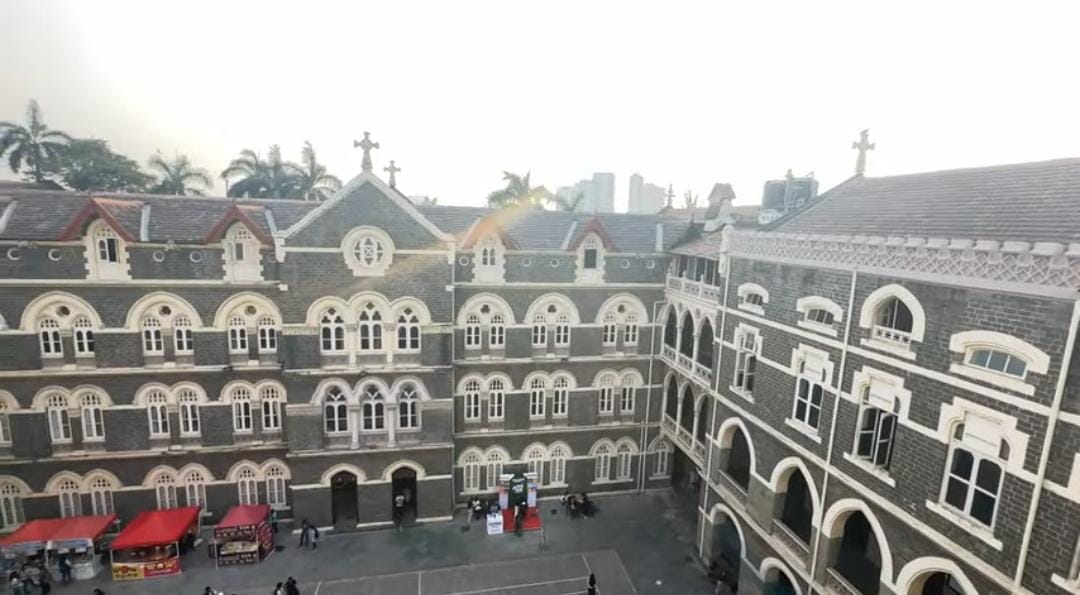St. Xavier’s Capitulation: Cancelling Fr. Stan Swamy’s Lecture Undermines Justice and Academic Freedom
Contradicts Jesuit Values
On August 9, 2025, World Indigenous Day, St. Xavier’s College, Mumbai, a prestigious institution renowned for its Jesuit-rooted liberal and cosmopolitan ethos, cancelled a memorial lecture honouring Fr. Stan Swamy, a Jesuit priest and tribal rights activist. The decision came after the Akhil Bhartiya Vidyarthi Parishad (ABVP), the student wing of the Rastriya Swayamsevak Sangh (RSS), objected and submitted a letter to the college administration. This capitulation is not an isolated incident but part of a troubling pattern—years ago, the college also cancelled a talk by a female Dalit activist and writer during the Malhar conclave, bowing to similar external pressure. At a time when India should celebrate indigenous voices, this move insults the memory of Fr. Stan Swamy, a man of indomitable compassion, courage, and grace, whose life was unjustly cut short by state overreach. This article critically examines the cancellation, Swamy’s legacy, the government’s treatment of him, and the broader implications for academic freedom and secular values.
A Legacy of Compassion: Fr. Stan Swamy’s Activism
Fr. Stan Swamy, born on April 26, 1937, in Tamil Nadu, dedicated over five decades to advocating for India’s indigenous Adivasi communities, particularly in Jharkhand.
As a Jesuit priest, he founded Bagaicha, a social action center in Ranchi, providing legal aid, education, and support to tribal groups displaced by industrial projects like mining and steel plants. His work exposed human rights abuses, including land grabs by corporations, earning him both admiration and enmity. Swamy’s activism was rooted in a belief in constitutional rights, aligning with Article 21’s guarantee of life and liberty, which he sought to extend to marginalized populations. His efforts challenged powerful interests, making him a target for accusations of “anti-national” activity, a label often wielded to silence dissent in India.
State Overreach: Inhumane Treatment and Unproven Charges
On October 8, 2020, the National Investigation Agency (NIA) arrested Swamy, then 83, under the Unlawful Activities (Prevention) Act (UAPA) for alleged links to Maoists and involvement in the Elgar Parishad-Bhima Koregaon case. The charges, based on digital evidence later questioned for authenticity, lacked concrete proof, and no convictions have been secured despite his detention. Suffering from Parkinson’s disease, Swamy was denied basic amenities in Taloja jail, including a sipper and straw, essential for his condition. His health deteriorated rapidly, and he died on July 5, 2021, before a bail hearing, raising grave concerns about custodial care. The United Nations, in a 2021 statement, called for an investigation into his detention and death, citing potential violations of international human rights standards. The National Human Rights Commission (NHRC) reported a 30% rise in custodial mistreatment complaints from 2020 to 2024, reflecting a broader pattern of state accountability failures mirrored in Swamy’s case.
A Pattern of Capitulation:
St. Xavier’s Retreat
from Principle
St. Xavier’s decision to cancel the lecture, themed around migration and indigenous life—issues central to Swamy’s advocacy—contradicts its Jesuit heritage of social justice and intellectual freedom. The ABVP’s intervention, backed by its growing campus activism, reflects a broader trend.
A 2023 All India Students’ Association (AISA) report documented over 50 instances of disrupted academic events nationwide since 2020, signaling a chilling effect on discourse. The college’s prior cancellation of a Dalit activist’s talk during Malhar further suggests a reluctance to confront ideological pressure, undermining its reputation as a bastion of liberal thought. Jesuit institutions globally, such as Georgetown University, have historically hosted human rights lectures, making St. Xavier’s retreat a stark departure, as noted in a 2025 Jesuit network statement condemning the move.
Insult to a
Legacy: The Cost of Silence
The cancellation on World Indigenous Day, established by the United Nations in 1994 to honour indigenous rights, is a direct affront to Swamy’s legacy. His work with Adivasis countered narratives of “anti-national” behaviour with tangible social good, yet the college’s silence endorses the vilification he faced. Public outrage has mounted, with a Change.org petition garnering 15,000 signatures by August 10, 2025, demanding the college reconsider. This incident coincides with a broader crackdown on dissent, with 2024 Ministry of Home Affairs data showing 600 individuals detained under UAPA, many without trial. The Supreme Court’s 2023 ruling criticizing UAPA misuse and urging faster trials resonates with Swamy’s case, where delays contributed to his death, drawing global condemnation from figures like Noam Chomsky and Arundhati Roy.
The Broader Context: Erosion of Secular and Academic Space
This event reflects a tension between India’s constitutional secularism and rising communal politics. The 2024 Lok Sabha elections saw a 5% dip in urban voter turnout, partly linked to polarization concerns, mirroring the ABVP’s influence. The organization, with its RSS ties, has intensified campus interventions, aligning with a national trend of stifling dissent. St. Xavier’s historical role in fostering debates, such as the 1960s student movements against caste discrimination, is now at risk. The cancellation not only dishonors Swamy’s spirit but also signals a retreat from the academic freedom that Jesuit values champion, especially when contrasted with global peers who uphold such principles.
Reclaiming the Spirit of Resistance
St. Xavier’s cancellation of the Fr. Stan Swamy Memorial Lecture is a betrayal of its own ethos and an insult to a man who embodied compassion, courage, and grace under persecution. The college must reconsider its stance, honouring Swamy’s legacy by resisting external pressures and reaffirming its commitment to justice. As India navigates a polarized landscape, institutions like St. Xavier’s must stand as beacons of intellectual integrity, ensuring that voices like Swamy’s—silenced by the state—continue to resonate. The fight for secularism and academic freedom demands more than silence; it requires action to uphold the indomitable spirit Swamy represented.
Hasnain Naqvi is a former member of the history faculty at St. Xavier’s College, Mumbai






